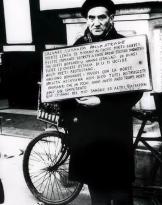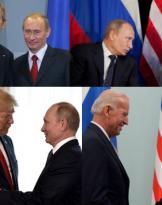The Hamal 16 of the year 1393 of the Afghan solar calendar is approaching. A date that will mark the fate of an entire country, given that in our calendar it corresponds to the 5 April 2014, the day set for the presidential elections in Afghanistan.
A moment in which they look with interest and concern not only to the Afghans themselves, as is normal, but to the entire West and the forces engaged in the ISAF mission. Since for the latter, in particular for the Italian contingent, the withdrawal is expected at the end of the current year, it will be important to understand with which men the country prepares to walk alone, hoping that their identities are those adequate to guarantee a greater detachment from the shadows of the past.
The danger, as is easily understood, is that of the resurgence of attacks and attacks aimed at preventing the regular conduct of electoral operations and influencing the freedom of expression of a people that intends to project towards the future.
To supervise the surveillance of the western sector is thinking, in this delicate phase, the Advisory Team of the Operations Coordination Center-Regional (OCC-R W AT).
"The effort at this stage is to ensure security, while avoiding any possible suspicion that Western forces may prefer one or the other candidate. This would be detrimental to the relations with the population and could trigger the fuse of new unrest, "explained Colonel Fabio Asso, advisor to the OCC.
To demonstrate its neutrality and avert another danger that could turn the presidential elections into a real failure, namely abstention, the OCC has preferred to empower the country's opinion leaders, who will have to convince the population about the opportunity to express their opinion. preference to be able to decide on the future of the country. Mullahs and teachers have been brought up for this important task.
Another aspect of no small account is that of the lack of a registry in the whole of Afghanistan. About 13 million people are expected to vote, but the number is uncertain precisely for this lack of personal services. In this sense, the registration for the vote for which the Occr has availed itself and is using modern means such as scanners for the detection of fingerprints, camera, computer, is a monitoring that can be used in the future to build a registry system that gives a minimum of reliability.
But it is not just these nodes to be solved in order to guarantee a correct operation of the operations.

To the approximately 6 thousand seats that will be set up, women will also be present. A sign of hope for the future, but it presents an aspect to be evaluated carefully. For security reasons, the searches must also concern them and, clearly, this phase can not be carried out by men. To overcome this problem, women from the "civil" society have been involved, who will help the staff in this fundamental operation.
Last but not least, the control of the territory through the use of drones was set up. Unmanned aircraft will fly over the affected areas to allow immediate intervention in case of attacks.
Some attempts at sabotage have already been blocked these days.
Daniela Lombardi
(photo: Andrea Cucco above / US Department of Defense below)












